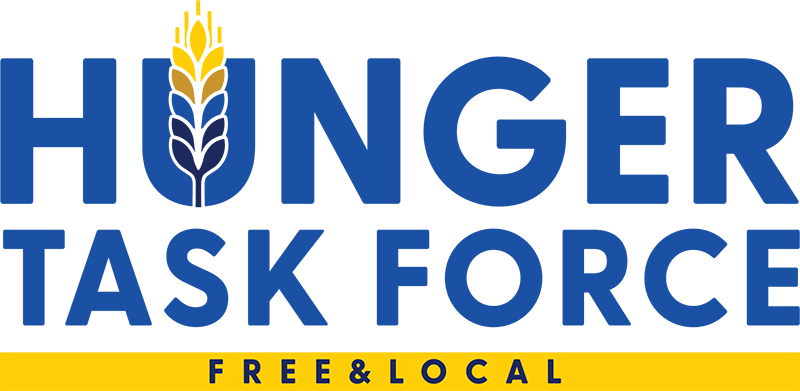Hunger Task Force Advocacy Director Pushes for Food Security Funding at Wisconsin Budget Session
Our team at Hunger Task Force works to end future hunger through advocacy—standing up for those who can’t stand alone. We work with elected officials and government agencies to strengthen and improve programs that feed families in our community and elevate stories of champions to amplify the impact that policy changes have on hungry families.
One of the most important ways to end hunger is working with elected officials, government agencies and citizen advocates to strengthen and improve important food security programs on the national, state and local level. These programs—including FoodShare, Women, Infants and Children (WIC), School Meals, Summer Meals and senior nutrition programs—feed families in our community.
Our Advocacy Director, Reno Wright, attended one of the Joint Committee on Finance Listening Sessions on April 4 in West Allis, Wisconsin, to testify on behalf of Hunger Task Force in collaboration with Feeding Wisconsin. Together, our organizations asked the committee to support our requests for funding for Local Food Purchasing and Food Distribution Grants in the upcoming biennial budget. Funding for these grants will allow anti-hunger organizations to purchase and distribute more Wisconsin-grown and nutritious food to children, families and seniors in need throughout Wisconsin while supporting local farmers and producers.
“I believe that it is important for Wisconsin citizens to participate in the decision-making processes that ultimately effect the people of Wisconsin,” said Reno. “In this instance, it was necessary for members of the Joint Committee on Finance to see the faces and to hear directly from the people in districts throughout the state about what issues matter most to them.”
In addition, several Hunger Relief Federation of Wisconsin members attended listening sessions that were hosted in their neighborhoods. Elizabeth Seefeldt from The BRICK Ministries, Inc. and Melissa Larson from West CAP joined the listening session on April 28th in Hayward, Wisconsin. Elizabeth attended to ask for three food security expenditures in the next biennial budget. After attending the session, she learned just how many valuable projects there are to be funded.
“Folks advocating for food security initiatives need to show up in great numbers to demonstrate strong support and get traction for future funding,” shares Elizabeth.
“This was my first experience, and I was mesmerized watching so many people from different backgrounds advocating for many important issues,” says Melissa. “I walked away with the knowledge that you really have to keep it short, simple and to the point. I lucked out – the buzzer went off as soon as I said thank you for your time.”
Donna Ambrose from Neighbor’s Place attended the listening session on April 29 in Wausau, Wisconsin, to join Hunger Task Force and Feeding Wisconsin in advocating for food purchasing grants, food distribution grants and the continuation of the Tribal Elder Food Box.
“I strongly recommend attending community hearings so our sector can be a unified voice across the state and drive home how food insecurity impacts local communities,” says Donna.
Hunger Task Force founded the Hunger Relief Federation of Wisconsin to position independent food banks, food pantries and other anti-hunger groups across the state as a powerful force for change in their community. Represented in 68 counties across Wisconsin and 10 recognized Tribal Nations, the Hunger Relief Federation is a statewide coalition with presence in some of Wisconsin’s most rural and remote spaces.
Hunger Task Force is Milwaukee’s Free & Local food bank and Wisconsin’s anti-hunger leader. The organization’s core values are Dignity, Justice, Equity, Compassion and Stewardship. Hunger Task Force feeds people today by providing healthy and culturally appropriate food to hungry children, families and seniors in the community absolutely free of charge. Hunger Task Force also works to end future hunger by advocating for strong public policies and nutrition programs at the local, state and federal level.
